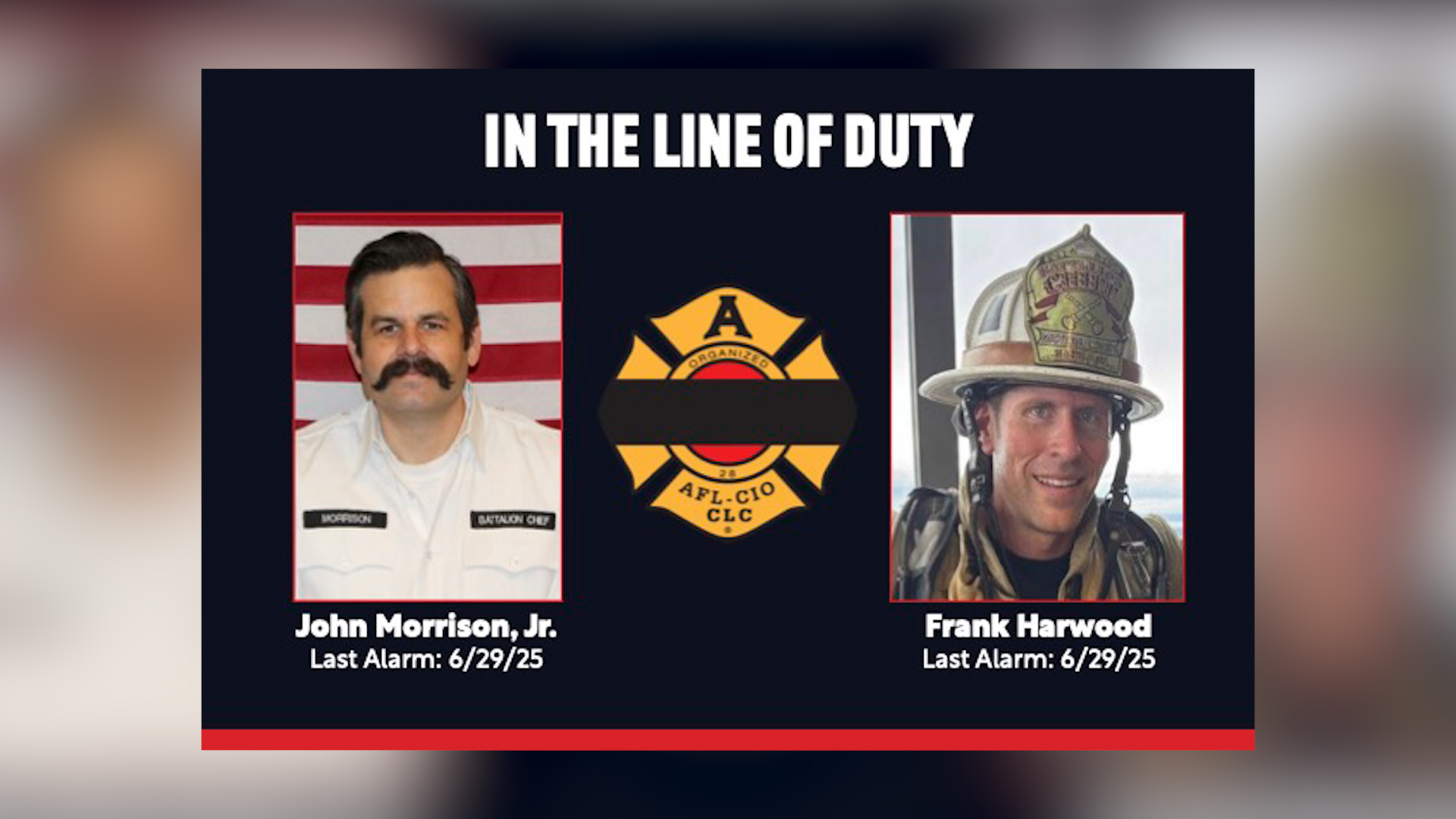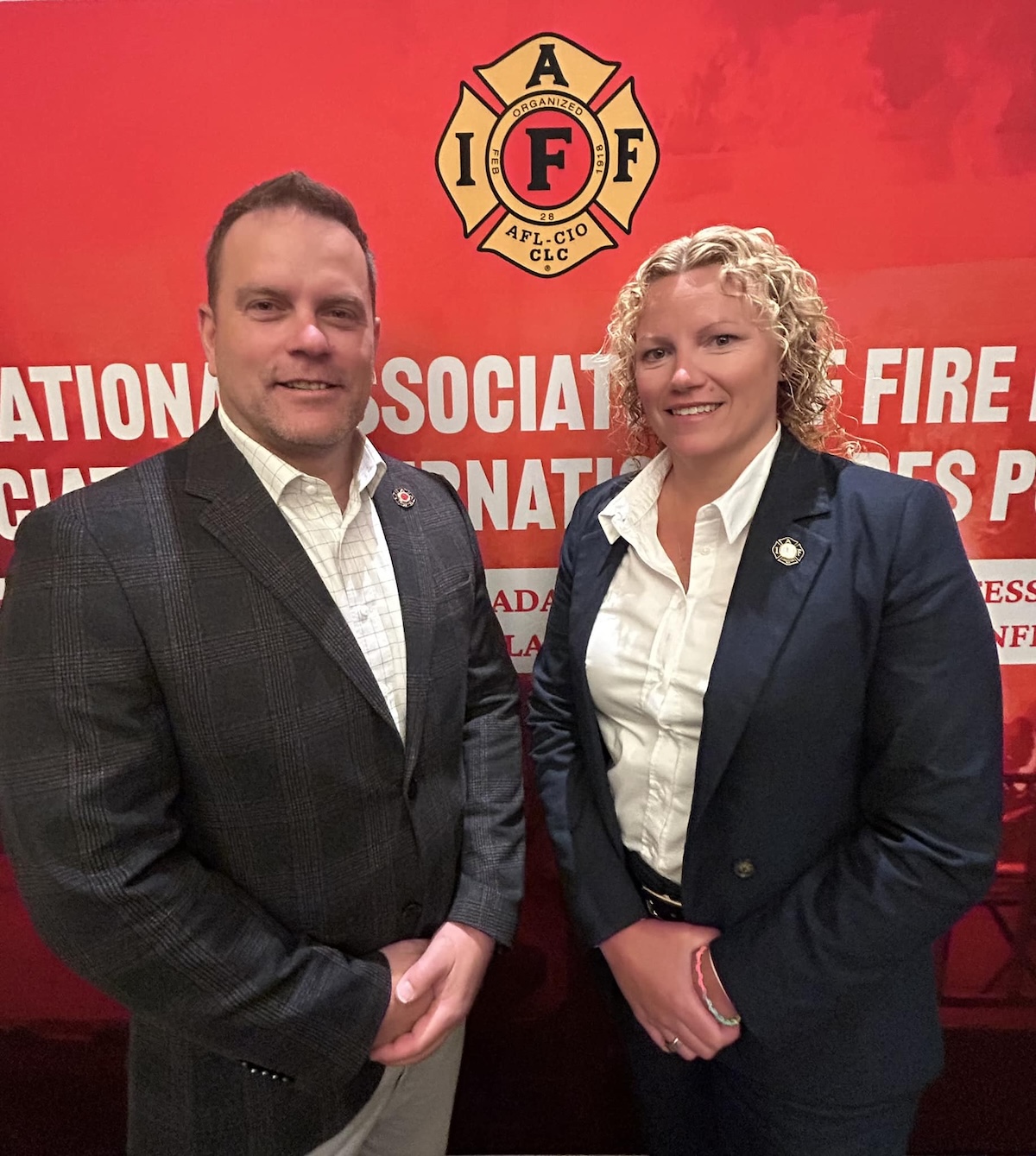In just four years, the Wheat Ridge Fire Protection District (WRFPD) in Colorado went from an all-volunteer department, to hiring its first paid fire fighters, to being a unionized department with a collective bargaining agreement.
“I am very proud of our Wheat Ridge Local 4881 members,” says IAFF 9th District Vice President Ray Rahne. “They showed an incredible amount of determination and never lost sight of their goals.”
“We could never have navigated the last four years without the assistance we received from the IAFF, District Vice President Rahne and the Colorado Professional Fire Fighters and several area union members,” says Wheat Ridge Local 4881 President Ryan Harris.
In 2010, it became very apparent to WRFPD leaders that the fire and emergency service needs of its residents were on the rise and that its volunteer fire department could not keep up with the demand.
To address the issue, the district board applied for and was awarded a Staffing for Adequate Fire and Emergency Response (SAFER) grant in 2011. The grant went toward hiring the first 11 paid fire fighters. And just a few months later, the WRFPD career fire fighters decided it needed a unified voice for the rank-and-file fire fighters. In 2012, the WRFPD organzed Local 4881.
Then, in 2012, leaders in the neighboring city of Edgewater realized that their fire and emergency service needs were not be adequately handled by their volunteer department. The choice was to form an inclusion agreement with a nearby fire district at a relatively minimal mill levy increase or to create its own department at a steep levy increase.
The City decided an inclusion deal with Wheat Ridge was the best option. This also meant that the Wheat Ridge Fire District would receive additional tax revenue from Edgewater property owners to fund fire service operations.
In 2013, the relationship between Local 4881 members and then-Fire Chief Steven Gillespie deteriorated. Members alleged that Gillespie was engaging in hostile management practices, along with other complaints. Eventually, this led to Gillespie tendering his resignation.
The WRFPD appointed Battalion Chief Bob Olme as acting fire chief. “The morale among our members improved a lot after this change was made,” says Local 4881 Executive Board Member Greg Mular, who serves as a spokesperson for the local.
By 2014, the number of paid fire fighters had increased to 33. But, the fire district board still needed to determine how to financially maintain the current level of service and be ready to expand should service needs expand. Total service calls hit 3,806 in 2013, up from 2,754 in 2012.
The members of Wheat Ridge Local 4881, with the support of their fire chief, launched a ballot initiative campaign to increase the mill levy by five mills. The additional tax dollars would ensure that the district could continue to pay existing fire fighters above minimum wage and possibly hire more.
With assistance from the Colorado Professional Fire Fighters, Local 4881 put boots on the ground and used every communication avenue available to them to get the message out to the voters and to encourage them to cast their ballots in the May election. The levy passed with 3,054 yes votes and 2,393 no votes.
With the financial future of the fire district looking more solid, the members of Local 4881 entered into its first contract negotiations with the WRFPD, using the provisions of Colorado Senate Bill 25, which allows Colorado fire fighters to collectively bargain.
“Our main goal was to create a good foundation with our first contract,” says Mular. “With a good basic contract, we can tweak or add provisions as needed. I really feel like that is what we accomplished.”
Local 4881 successfully negotiated a one-year contract. As a result, pay has increased from minimum wage to $13.37 per hour. Fire fighters also now have medical insurance and pension benefits.


